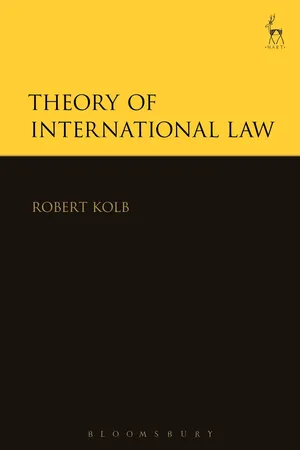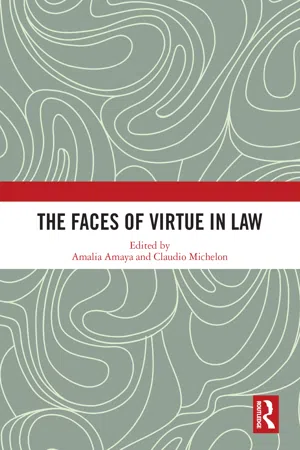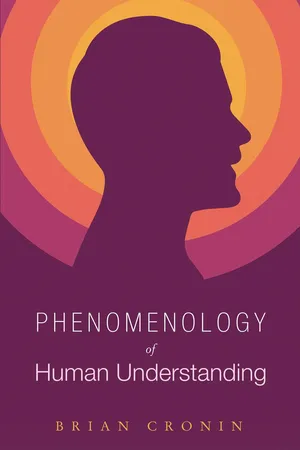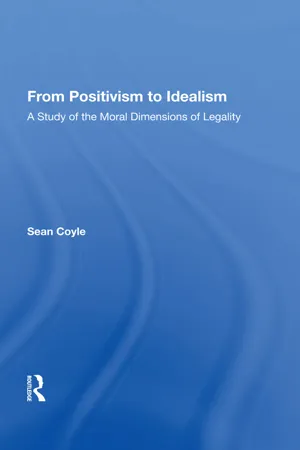Law
Moral Values
Moral values refer to the principles and beliefs that guide individuals in distinguishing right from wrong and in making ethical decisions. In the context of law, moral values can influence the development and interpretation of legal principles and standards. They play a significant role in shaping societal norms and expectations regarding behavior and justice.
Written by Perlego with AI-assistance
Related key terms
7 Key excerpts on "Moral Values"
- eBook - ePub
- Robert Kolb(Author)
- 2016(Publication Date)
- Hart Publishing(Publisher)
202 Through this legal self-restriction, the moral act remains largely based on the only possible ground on which it can flourish, namely free will to realise the good. There remains, however, the fact that certain legal orders or branches of the law are more connected to morals than others. Thus canon law and those provisions of the criminal code reflecting some of the Ten Commandants are closer to morals than most of the more or less dull provisions of administrative law.There is a series of factors distinguishing law from morals. The distinction is merely phenomenological—and complex—since the ultimate bases of the two normative phenomena remain closely linked. Different criteria of distinction have been proposed. The first, and most important, is that morality is an internal phenomenon, while law has an external reach.203 In other words, morals concern the inner life of individuals, their volition and their search for the good; law concerns the external life of individuals, in the domain of what is due to others. The same idea was developed by Kant, but with a slight shift of accent. For Kant, legality is distinguished from morality from the point of view of the reason for respecting the norms: in the legal realm, what counts is only the conformity of the action with the legal requirement, whatever the motives for this action; in the moral realm, the motive for the action is paramount, since it must itself be based on the search for the good.204 - eBook - ePub
- Amalia Amaya, Claudio Michelon(Authors)
- 2020(Publication Date)
- Routledge(Publisher)
Can the law help us to be moral?Kimberley Brownlee and Richard Child
ABSTRACTThe moral value of law can take many forms. It is instrumentally valuable when it coordinates interaction, provides moral advice and leadership, models the virtues, and motivates us to be moral. It is intrinsically valuable when it constitutes the collective moral conscience of citizens, embodies an ideal form of communal life, and expresses the moral integrity of the community. We analyse all of these potential values of law and assess their moral significance. In doing so, we are careful to distinguish between (a) the general concept of law and (b) the actual law of any particular legal system. We argue that, although in principle law does have the potential to help us to be moral in each of the ways noted, many actual legal systems are conducive to great immorality and injustice. Being moral and living well under such regimes is likely to be much harder than it would be otherwise, even in the absence of any legal system.A good constitution is not to be expected from morality, but, conversely, a good moral condition of a people is to be expected only under a good constitution.Immanuel Kant, Perpetual Peace11. Introduction
There are many interpretations of what it means to be moral and, hence, many ways of interpreting whether the law can help us to be moral. For consequentialists, what matters is whether the law can help us to realise more valuable states of affairs than those we could realise without it. For deontologists, the issue is whether the law can help us to honour our moral duties better than we could do without it. And for virtue ethicists, the question is whether the law can help us to be more virtuous than we could be without it.In this essay, we consider our central question from all three of these perspectives. In doing so, we are careful to distinguish between (a) the general concept of law - eBook - ePub
Ethics for Life
Making Sense of the Morals of Everyday Living
- Mel Thompson(Author)
- 2018(Publication Date)
- Teach Yourself(Publisher)
10 Religion and Moral ValuesIn this chapter you will learn:• How religion relates to ethics• About the ethical norms of the major world religions• To explore the issue of religious freedomWhy?All religions have moral codes by which their followers are encouraged to live, reflecting their beliefs and values. But should these take precedence over the rules of society as a whole? Should they be applied to people who are outside the faith community? How are religious moral rules justified? Whether or not we are religious ourselves, we all come across people whose lifestyle reflects their religious tradition, and it is therefore valuable to stop and reflect on religious morality, if only so that we may appreciate why others hold their particular views.The moral choices people make, and the values they express through them, depend (consciously or unconsciously) on their understanding of the nature of the world and the place of humanity within it. But these are also things with which religions are concerned. Each religion:• presents a particular view of the world• promotes a set of values by which its followers should live• gives specific advice on how to live – in terms of either rules to be followed or attitudes to be taken.Religious rules or values may be based on:• the authority of a religious leader or holy book• the cumulative experience of that religious community• rational thought, or an understanding of what is ‘natural’.Religious values influence society in general, not just practising members of that religion. For example, many of the ethical arguments that we have examined so far are based on ideas and values that have been promoted by the Christian religion. This does not mean that every ethical thinker is Christian, but that everyone who lives within Western culture is liable to be influenced by Christian ideas, simply because they have come to pervade so much habitual thinking. The same would be true for someone living in a predominantly Jewish, Muslim, Hindu, Sikh or Buddhist society. The assumptions people make about the nature and value of life often reflect their religious background, or a deliberate reaction against it. - eBook - ePub
- Cronin(Author)
- 2017(Publication Date)
- Pickwick Publications(Publisher)
Cultural values are the beliefs and values inherent in a given way of life. These values are embodied in the constitution, inculcated in an educational system, and underpin the judicial system. We value truth, education, science, and technology. We respect the values of tolerance and freedom and equality. The truth of our history is embodied in the myths, the institutions, traditions, stories, and songs of the group. Different cultures have various configurations or ways of expressing these cultural values. A democratic society will have a set of core values concerning ownership, voting, rule of law, and a balance of powers between different branches of government. A communist or dictatorial society will have a very different set of cultural values.Moral Values are the values implicit in our relations to one another as free and responsible human persons. Above and beyond the question of truth, there arises the question of moral value. What is the best way to live as a person in society? How do we develop as free and responsible persons who know, decide upon, and implement an integral scale of values? This is the good of the individual who realizes his or her freedom as a responsible person. Honesty, tolerance, justice, responsibility, freedom, equality, and respect are examples of Moral Values. It is not so easy to specify Moral Values, so I will do this in a later section.Religious values are not my primary concern here, but for many people there are also religious values. What is the form of the question intending religious values? To be fully human is to be open to the divine. We can recognize this openness by the unlimited nature of our questioning, by our experience of the holy, by our longing of mind and heart for the possibility of God’s intervention in our lives. Hence worship, prayer, grace, unconditional love, meditation, asceticism, self-sacrifice, service, love of neighbor, and so on are examples of religious values, which go beyond Moral Values.The scale of values helps us to see that there are different levels of value, and that they are dependent on one another; the higher presupposes the lower, while at the same time, they go beyond the lower and introduce something new and more valuable. Just as understanding presupposes and goes beyond experiencing, so social values presuppose but go beyond vital values. Just as reflective understanding presupposes and goes beyond both understanding and experiencing, so cultural values presuppose and go beyond social and vital values. Just as deliberative insights presuppose and go beyond reflective and direct insights and experiencing, so Moral Values presuppose and go beyond cultural, social, and vital values. Similarly, religious values presuppose and go beyond moral, cultural, social and vital values. Not all values are at the same level; values are not all equal. The good is an analogous notion. The division into levels is not arbitrary but based on our complex nature as sensitive, intellectual, rational, moral, and religious beings. The image of levels should not be taken too literally; I am not trying to compartmentalize human valuing but to have a conceptual scheme for relating different kinds of values to one another. - eBook - ePub
- Francis Dunlop(Author)
- 2018(Publication Date)
- Routledge(Publisher)
types of value.I reject all attempts to evade the investigation of value by introducing "more manageable" concepts which are supposed to replace the direct grasp of genuine ethical values. This goes especially for the concepts of "law", "the law of conscience" (in nomism and formalism), "pleasure", and "utility" (as in all varieties of hedonism) - though I must here dispense with a thorough exposition and refutation of these approaches. The ethics of law is best opposed by considering the enormous range of ethical phenomena which have nothing to do with the observance or disregard of some specific, or indeed any, law (e.g. sacrifice or delight in creating things). The counter-argument that "laws" can be made to cover these things as well deprives "law" of any genuine meaning. (The real value of the idea of law in a more limited sense will be discussed later.) In similar fashion the welfare theme loses all definition when it is produced as the "explanation" apt or clearly forced - of all ethical pronouncements. However, the principle of social utility should be distinguished from that of maximum individual pleasure in that its employment as the fundamental ethical principle is much easier to reconcile with the immediate data of moral consciousness, which seem to emerge in an atmosphere precisely characterised by its opposition to pleasure and individual profit. The claims of the general interest present the very paradigm of an impersonal and removed, yet hallowed, power, which demands self-sacrifice. Ethical investigation can as little neglect this fundamental relation as Christian ethics the reference back to the divine will, which is naturally less accessible to systematic enquiry. But however close the correspondence between ethical values and social utilities may be, social utility is by no means directly intended in the ethical attitude as such, even "unconsciously" or "as a matter of course". Good conduct cannot be understood simply as a way of producing pleasurable states or objects of utility, or again as the way people thus "disposed" function, as though they were themselves "goods". Even the old idea that virtue produces the good of self-satisfaction and inner contentment, and thus prevents people from being dominated by external goods, is, for the same reasons, essentially unacceptable to the ethic of values. (Again the secondary value-significance and the morally edificatory role of this or that hedonic motive is another question.) - eBook - ePub
From Positivism to Idealism
A Study of the Moral Dimensions of Legality
- Sean Coyle(Author)
- 2017(Publication Date)
- Routledge(Publisher)
It is my purpose in this final chapter to offer some thoughts on the relationship between law (considered as a familiar set of institutions and practices) and the ideals of legality and governance. Given the nature of the concepts involved, my discussion will inevitably remain somewhat suggestive and capable of further refinement. Yet its basic direction should be evident from the concerns of preceding chapters. Modern jurisprudence is deeply wedded to the view that moral ideals are in some sense products of the will, and most jurisprudential writing has therefore tended to focus upon the law’s ability to structure social interaction in such a way as to bring about certain goals or conditions, correspondingly less emphasis being placed upon the law’s embodiment of informal practices and varieties of social formation. Just because there is no obvious dividing line between the role of sustaining the intellectual foundations of civility and that of manipulating forms of social interaction, there is a perennial temptation to subsume the nurturing function of the law within the latter processes of alteration and change. It is this temptation which, I argue, ought to be firmly resisted.One way in which to overcome temptation is to understand the source of that temptation. The relevant place to start, in this instance, is with the nature of morality. Where law is regarded as being connected to, or as embodying, morality, the principles to which the law is viewed as giving expression are naturally conceived to be juridical in structure. Thus, the ideals with which law is ultimately connected (if they are viewed as moral ideals at all) are thought to relate the mundane rules and doctrines of legal practice to specifically juridical forms of moral consciousness. Such forms typically exhibit the characteristics of the very legal mentality that the moral ideals explain and justify: they therefore frequently embody morally significant distinctions between the ‘individual’ and the ‘state’; between ‘agents’ and those devoid of agency; and they contain notions of justice structured around conceptions of moral right, power and obligation.1 The effect of such thinking is to suppress a sense of the degree to which law draws upon planes of shared understanding and experience which lie beneath (and make possible) the conscious levels of political thought. In embodying aspects of the social, such planes of understanding may of course be viewed as objects of ‘political’ concern, in the wide sense that any dimension to social interaction is potentially subject to variability in pursuit of broader goals; but this is to miss the importance of the fact that such social forms constitute in an important sense the pre-political foundations upon which the deliberate processes of political and legal manipulation depend.2 - eBook - ePub
Natural Law
An Introduction to Legal Philosophy
- Alexander Passerin d'Entreves(Author)
- 2017(Publication Date)
- Routledge(Publisher)
6 Law and MoralsThe relation between law and morals is the crux of all natural law theory. The theory not only requires an extension of the notion of law. It also implies a definite view about its compass. The problem is no longer one of form or of structure. It is a problem of content. The content of law is a moral one. Law is not only a measure of action. It is a pronouncement on its value. Law is an indication of what is good and evil. In turn, good and evil are the conditions of legal obligation.The problem of the content of law is far from being ignored by present-day legal positivists. They frankly admit that every system of laws corresponds to a particular 'ideology'. They refer to the 'sociological background' as a necessary part of legal experience. They recognise that law is not only a command, but also the embodiment of certain values. The difference lies in the manner of conceiving those values. Natural law theorists would never have admitted that law is merely the expression of the standards of a particular group or society. They believed in absolute values, and they conceived of law as a means to achieve them. 'Law is the furtherance of what is good and equitable.' 'There is no law unless it be just.' 'The end of all political association is the preservation of the natural and imprescriptible rights of man.' I have chosen my quotations at random. We are no longer concerned with what divided their authors. We are concerned with what they had in common.The close association of morals and law is the distinguishing mark of natural law theory throughout its long history.1 The very enunciation of natural law is a moral proposition. The first precept of natural law, says Thomas Aquinas, is 'to do good and to avoid evil.'2 And Grotius declares that 'the law of nature is a dictate of right reason which points out (indicans ) that an act. . . has in it a quality of moral baseness or moral necessity.'3
Learn about this page
Index pages curate the most relevant extracts from our library of academic textbooks. They’ve been created using an in-house natural language model (NLM), each adding context and meaning to key research topics.






